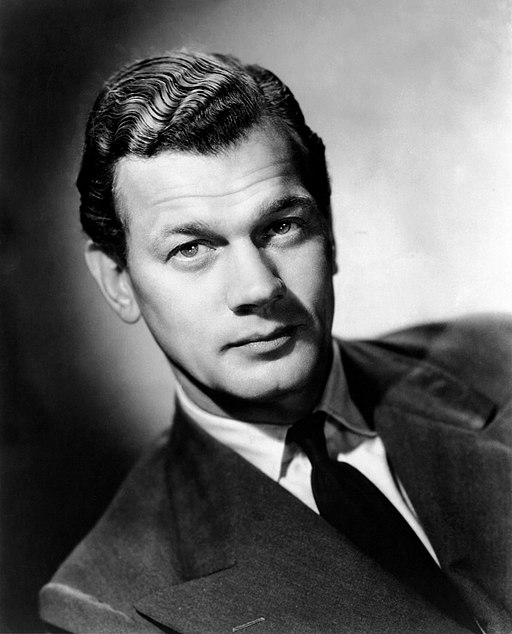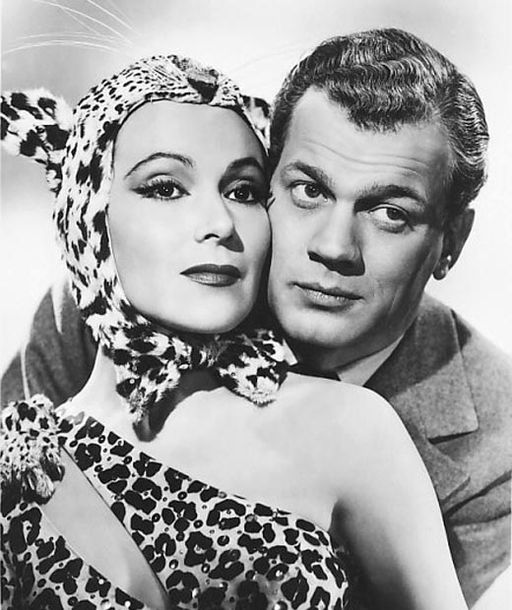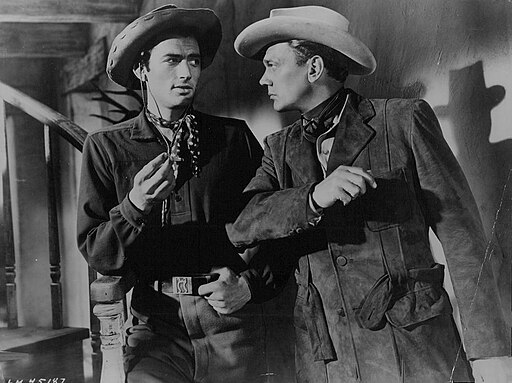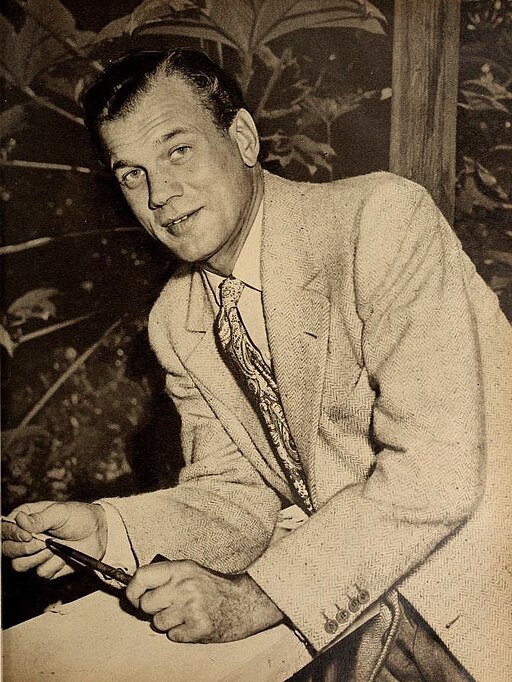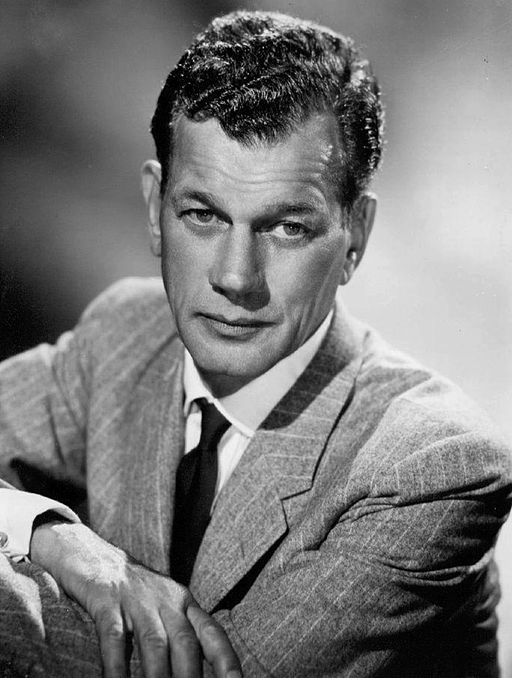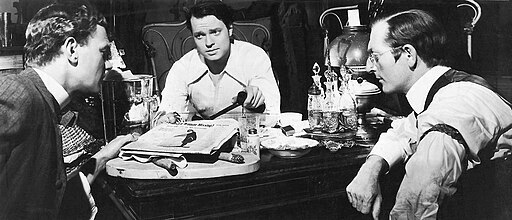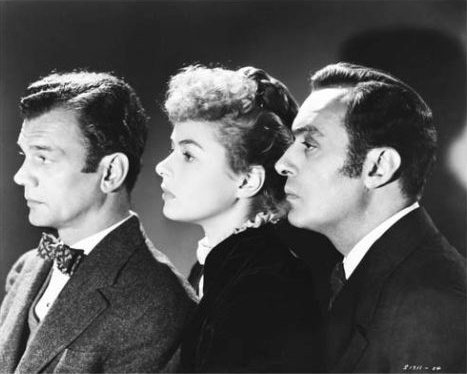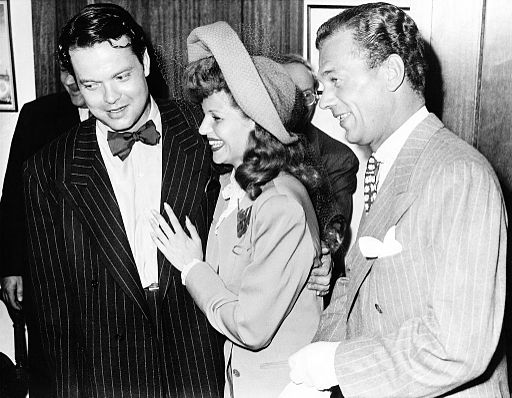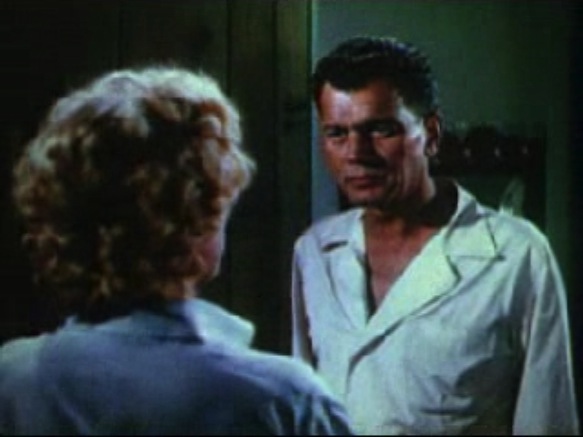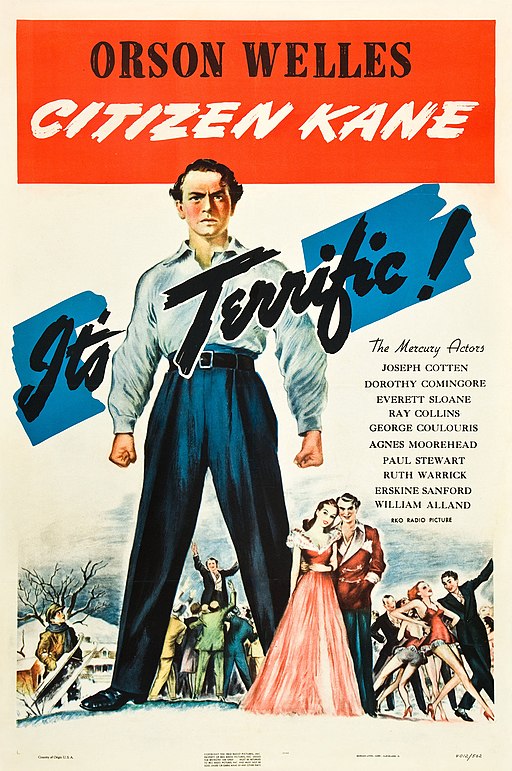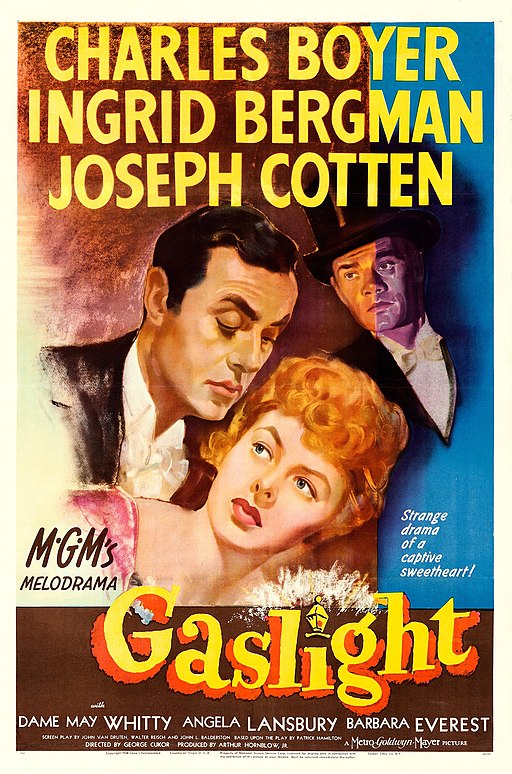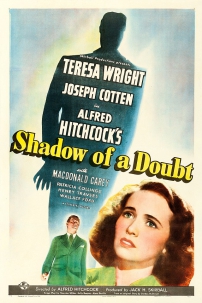Joseph Cotten
back| Full Name | Joseph Cheshire Cotten Jr. |
| Stage Name | Joseph Cotten |
| Born | May 15, 1905 |
| Birthplace | Petersburg, Virginia, United States |
| Died | February 6, 1994 |
| Buried | Blandford Cemetery, Petersburg, Virginia, United States |
| Married to | Lenore Kipp in 1931, which ended in divorce. He then married actress Patricia Medina in 1960, who was his spouse until his death. There was also a brief marriage to actress Allene Roberts |
| Children | Stepfather to Patricia Medina's daughter from her previous marriage |
| Notable films | Citizen Kane (1941) - The Magnificent Ambersons (1942) - Shadow of a Dount (1943) - Gaslight (1944) - The Third man (1949) - Niagara (1953) - Duel in the Sun (1946) |
Joseph Cotten
The Understated Luminary of Classic Cinema
Joseph Cheshire Cotten Jr. (1905-1994) was an esteemed American actor, renowned for his contributions to classic Hollywood cinema. His film debut in Welles' "Citizen Kane" (1941) solidified his status in Hollywood.
Known for his sophisticated screen presence and nuanced performances, Cotten starred in notable films like "The Magnificent Ambersons" (1942), Hitchcock's "Shadow of a Doubt" (1943), and "The Third Man" (1949).
Related
Joseph Cotten (1905 – 1994)
Biography and Career Overview
Joseph Cheshire Cotten Jr. was born on May 15, 1905, in Petersburg, Virginia, United States. Raised in a well-to-do Southern family, he was immersed in an environment of culture and arts from a young age. His interest in acting sparked early, leading him to participate in local theater productions. Despite this early interest, Cotten initially pursued a career in advertising after attending the Hickman School of Expression in Washington D.C. and later working as a critic for the Miami Herald.
Path Towards Success
Cotten's passion for acting couldn't be suppressed for long. He moved to New York City in the 1930s, a decision that marked the true beginning of his acting career. His break came when he met Orson Welles, with whom he would form a lasting professional relationship. Cotten joined Welles’ Mercury Theatre, contributing significantly to its productions. His Broadway appearances in plays like "The Shoemaker's Holiday" and "Julius Caesar" brought him critical acclaim.
The transition to the silver screen came with the legendary film "Citizen Kane" (1941), where Cotten's portrayal of Jedediah Leland earned him significant recognition. This was followed by a string of successful films, including "The Magnificent Ambersons" and "Shadow of a Doubt". His ability to bring depth to complex characters solidified his status as a prominent Hollywood actor.
Personal Life and Marriages
Joseph Cotten's personal life was as eventful as his career. He was married three times. His first marriage was to Lenore Kipp in 1931, but it ended in divorce. His second marriage was brief, to actress Allene Roberts. His most enduring and well-known marriage was to British actress Patricia Medina in 1960. This marriage lasted until his death and was a significant part of his personal life.
Passions
Apart from acting, Cotten was known for his love of gardening, an interest he shared with his wife, Patricia. He also authored an autobiography, "Vanity Will Get You Somewhere", which provided an intimate look into his life and career.
Death and Cause of Death
Joseph Cotten's health began to decline in the 1980s. He suffered a stroke in 1981, which affected his ability to speak, a devastating blow for an actor known for his distinctive voice. He battled throat cancer in the later years of his life. Cotten passed away on February 6, 1994, due to pneumonia, a complication from his ongoing health issues. He was 88 years old. His burial took place in Blandford Cemetery in his hometown of Petersburg, Virginia, bringing his story full circle back to his roots.
Legacy
Joseph Cotten's career spanned over four decades, during which he left an indelible mark on the film industry. His performances in films like "Citizen Kane" and "The Third Man" remain iconic. He is remembered not just for his roles in these classic films but also for his genteel demeanor and the grace with which he navigated both his career and personal life. His contributions to the world of cinema continue to be celebrated, and his works remain a significant part of classic Hollywood cinema history.
Short Biography of Joseph Cotten and Adressing his Loss of Voice:
Acting Style of Joseph Cotten:
Joseph Cotten's acting style was a blend of subtle sophistication and effortless charisma, making him a unique figure in the golden era of Hollywood. His performances were marked by an understated naturalism, a trait not common among actors of his time who often leaned towards a more theatrical style.
Subtle Nuance and Understated Performance
Cotten had a remarkable ability to convey deep emotions with minimal gestures or changes in expression. This subtlety in his performances allowed him to portray complex characters with depth and nuance. He didn't rely on grand gestures or overt theatrics; instead, his strength lay in his ability to communicate the inner turmoil or thoughts of his characters through slight facial expressions, a soft-spoken delivery, or a lingering gaze. This quality made him particularly effective in film noir and psychological thrillers, where the complexity of characters often lies beneath the surface.
Versatility
Cotten's filmography showcases his versatility as an actor. He was equally adept at playing the charming hero, as seen in "The Third Man," and the menacing villain, as exemplified in Alfred Hitchcock's "Shadow of a Doubt." In the latter, his portrayal of Uncle Charlie, a charismatic yet sinister figure, was a testament to his ability to navigate complex character roles with ease. He could shift from being affable and charming to menacing and sinister, often within the same role, making his characters multi-dimensional and intriguing.
Collaborative Approach
Cotten's collaborations with directors like Orson Welles and Alfred Hitchcock further honed his acting style. Working with Welles, he developed a style that complemented the innovative cinematic techniques of the time, such as deep focus and long takes, which required a more naturalistic acting approach. His work with Hitchcock, on the other hand, showcased his ability to build suspense through performance, capitalizing on subtlety and nuance.
Voice and Diction
Cotten's voice was another significant element of his acting. He had a distinctive, resonant voice that he used to great effect, particularly in delivering dialogue that was rich in emotion or gravitas. His clear diction and controlled use of intonation added a layer of sophistication to his characters, making even ordinary dialogue seem compelling.
Emotional Authenticity
Regardless of the role, Cotten always brought a sense of emotional authenticity to his performances. Whether playing a romantic lead or a brooding antagonist, he had a way of making his characters feel real and relatable. This authenticity resonated with audiences, making his performances memorable and impactful.
Memorable Film Lines from Joseph Cotten:
Joseph Cotten, known for his roles in some of the most iconic films of the classic Hollywood era, delivered several memorable lines throughout his career. Here are a few notable quotes from his characters:
- From "Citizen Kane" (1941) - As Jedediah Leland:
"You know, Mr. Bernstein, if I hadn't been very rich, I might have been a really great man."
"A fellow will remember a lot of things you wouldn't think he'd remember. You take me. One day, back in 1896, I was crossing over to Jersey on the ferry, and as we pulled out, there was another ferry pulling in, and on it, there was a girl waiting to get off. A white dress she had on. She was carrying a white parasol. I only saw her for one second. She didn't see me at all, but I'll bet a month hasn't gone by since that I haven't thought of that girl."
- From "Shadow of a Doubt" (1943) - As Uncle Charlie:
"Do you know the world is a foul sty? Do you know if you ripped the fronts off houses, you’d find swine? The world’s a hell. What does it matter what happens in it?"
"The cities are full of women, middle-aged widows, husbands, dead, husbands who've spent their lives making fortunes, working and working. And then they die and leave their money to their wives, their silly wives. And what do the wives do, these useless women? You see them in the hotels, the best hotels, every day by the thousands, drinking the money, eating the money, losing the money at bridge, playing all day and night, smelling of money, proud of their jewelry but of nothing else, horrible, faded, fat, greedy women..."
- From "The Third Man" (1949) - As Holly Martins:
"I never knew the old Vienna before the war, with its Strauss Music, its glamour and easy charm—Constantinople suited me better."
"I was going to stay with him, but he died Thursday."
- From "Love Letters" (1945) - As Alan Quinton:
"I've loved you since the beginning of time."
- From "Niagara" (1953) - As George Loomis:
"You smell like a dime store. I know what that means."
"I'm going to bed, Polly. I've got a lot of sleep to catch up on."
Awards and Recognition:
Venice Film Festival
- In 1948, Joseph Cotten won the Volpi Cup for Best Actor at the Venice Film Festival for his performance in "Portrait of Jennie". This award was a significant international recognition of his talent.
Other Honors and Recognitions
- Cotten’s contributions to cinema were primarily acknowledged in retrospectives and through the lasting impact of the films in which he appeared.
- He received recognition from film critic circles and film preservation societies for his role in shaping classic Hollywood cinema.
- Posthumously, his work continues to be celebrated in film festivals and classic movie retrospectives around the world.
Honorary Awards and Tributes
- While not an award, Cotten's autobiography, "Vanity Will Get You Somewhere", was a candid reflection of his life and career, and is often cited for its insights into the era of classic Hollywood.
- Various film societies and institutions have honored Cotten’s legacy through screenings and discussions of his films.
Movies featuring Joseph Cotten:
1941
- Citizen Kane: Directed by Orson Welles, this groundbreaking film follows the life of Charles Foster Kane, a newspaper tycoon. Cotten plays Jedediah Leland, Kane's best friend and a critic of his ways.
1942
- The Magnificent Ambersons: Another collaboration with Orson Welles, Cotten plays Eugene Morgan in this story about the declining fortunes of a proud Midwestern family and the social changes brought by the industrial revolution.
1943
- Journey into Fear: Cotten plays an American ballistics expert in Turkey who becomes involved in espionage and assassination plots during WWII.
- Shadow of a Doubt: Directed by Alfred Hitchcock, Cotten portrays Uncle Charlie, a charming yet mysterious figure who might be a serial killer.
1944
- Gaslight: In this psychological thriller, Cotten plays Brian Cameron, a Scotland Yard inspector who becomes involved in a case of a woman being psychologically manipulated by her husband.
- Since You Went Away: A drama about the American home front during WWII, Cotten plays Lieutenant Tony Willett, an old friend of the family at the film's center.
1945
- Love Letters: Cotten plays Alan Quinton, a soldier who writes letters for a fellow soldier to his girlfriend, only to fall in love with her himself.
1946
- Duel in the Sun: A western epic where Cotten plays Jesse McCanles, involved in a tragic love triangle.
- The Farmer's Daughter: Cotten plays Glenn Morley, a politically savvy individual involved in the story of a farm girl who becomes a housemaid and ends up influencing political campaigns.
1947
- The Paradine Case: In this Hitchcock film, Cotten plays Anthony Keane, a lawyer who becomes too involved with a client accused of murder.
1948
- Portrait of Jennie: Cotten plays Eben Adams, an artist who falls in love with a mysterious girl who may not be of this world.
- I'll Be Seeing You: Playing Zachary Morgan, a shell-shocked soldier, Cotten co-stars with Ginger Rogers in this drama about two troubled people finding solace with each other.
1949
- Under Capricorn: Set in 19th-century Australia, Cotten plays Sam Flusky, a wealthy ex-convict in a troubled marriage.
- The Third Man: A British film noir where Cotten portrays Holly Martins, an American who arrives in post-war Vienna to discover dark secrets about his friend.
1950
- September Affair: Cotten plays David Lawrence, involved in a romance with a pianist after they are presumed dead in a plane crash.
1951
- Half Angel: Cotten is John Raymond Jr., a lawyer who becomes the object of a woman's split personality's affection.
- Peking Express: In this adventure film, Cotten plays Michael Bachlin, involved in intrigue on a Chinese train trip.
1952
- The Steel Trap: Cotten plays a bank employee who embezzles money and tries to flee the country.
- Untamed Frontier: Cotten is in a western setting, playing Kirk Denbow, involved in a family feud over oil and cattle.
1953
- Niagara: A film noir-thriller starring Marilyn Monroe, where Cotten plays George Loomis, her troubled husband.
- The Man with a Cloak: In this period mystery, Cotten is Dupin, a mysterious man involved in the lives of a wealthy old woman and her heirs.
1954
- Egypt by Three: Cotten narrates this travelogue about Egypt.
1955
- Special Delivery: Cotten plays a postal inspector involved in uncovering a mail theft ring.
- The Bottom of the Bottle: Playing Patrick Martin, Cotten is involved in a drama about a man trying to escape his past on his brother's ranch.
1956
- The Killer Is Loose: As Detective Sam Wagner, Cotten is pursued by a vengeful ex-soldier he helped convict.
1957
- The Halliday Brand: In this western, Cotten plays Daniel Halliday, facing family and racial tensions as a sheriff.
1958
- From the Earth to the Moon: An adaptation of the Jules Verne novel, Cotten plays Victor Barbicane, involved in building a spacecraft to the moon.
- Touch of Evil: Directed by Orson Welles, Cotten has a small role in this film noir classic about corruption and murder in a border town.
1959
- The Angel Wore Red: Cotten plays Hawthorne, an ex-priest during the Spanish Civil War, caught in a love triangle.
1960
- The Last Sunset: In this western, Cotten plays John Breckenridge, whose wife is pursued by a fugitive.
1965
- The Money Trap: Cotten plays Dr. Horace Van Tilden in this crime drama about a detective getting involved in a burglary.
1970
- Tora! Tora! Tora!: A historical drama about the attack on Pearl Harbor, where Cotten plays Henry L. Stimson, the U.S. Secretary of War.
1971
- City Beneath the Sea: A sci-fi film where Cotten plays Dr. Ziegler, involved in an underwater city project.
1972
- Lady Frankenstein: In this horror film, Cotten plays Baron Frankenstein, creating a monster with a twist.
- The Screaming Woman: Cotten has a role in this TV movie about a woman hearing screams from a woman buried alive.
1973
- Soylent Green: In this dystopian future film, Cotten plays William R. Simonson, a wealthy and influential man with a dark secret.
- A Delicate Balance: A drama film where Cotten plays Harry, a guest in a troubled household.
1974
- Airport 1975: In this disaster film, Cotten plays Nicholas St. Downs III, one of the endangered passengers on a troubled flight.
1978
- The First Deadly Sin: In one of his final roles, Cotten plays Dr. Bernardi in this crime thriller about a detective tracking a serial killer.
1981
- Heaven's Gate: In this Western epic, Cotten has a small role as The Reverend Doctor.

